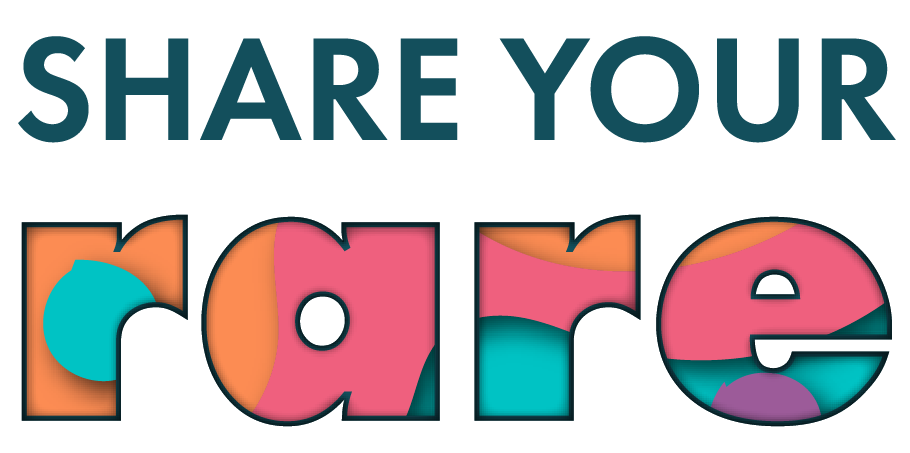
2020-2022
Share Your Rare is a Wellcome Trust funded public and patient engagement project that we have developed in collaboration with Dr Sam Chawner and Catrin Hopkins at University of Cardiff.
For this collaboration, we have developed workshops to be delivered both online and in person to connect with people in the rare genetic condition community. Our goal has been to bring together people who live with rare genetic conditions, their families, and the researchers and clinicians working on these conditions professionally, with a focus on the lived experience of those with rare genetic conditions.
We created workshops to explore these themes through two media, poetry and drawing.
For the poetry workshops, we used a form of poem known as a Cinquain Poem; a five line structured poem format that is a wonderful way of capturing and distilling the essence of a topic. Through Cinquain Poems, we explored the themes of mental health and living with or working on the research and treatment of rare genetic conditions.
These workshops took place during the Covid-19 pandemic, so we took the opportunity to also explore living through Covid-19 as a poetry theme.
Our drawing activity was originally designed for people to do in person or offline, for people who preferred to represent their topic visually rather than through poetry.
Share Your Rare has created a number of artistic outputs through the workshops and events; you can navigate around the site using the buttons below. We present the poems and images resulting from the workshops, as well as artworks created from the output of the workshops.
As well as engaging with the rare genetic condition community, we were given the opportunity to run these activities during Cardiff University's Subatomic Circus event in the summer of 2021. Both poetry and drawing activities proved to be very popular, and the poems and images from this event can also be explored by clicking on the button below.
This video artwork is inspired by the variety and diversity of experiences within the rare disease community. It is also a scientific metaphor for the variability in medical symptoms seen in rare genetic conditions. For example, 22q11.2 Deletion Syndrome (22q) also known as Velo-Cardio-Facial Syndrome (VCFS) and DiGeorge Syndrome is a rare genetic condition where one of the two copies of chromosome 22 has a section of DNA deleted.
Although many people have the 22q deletion in some form, the high variability and its interaction with genes of the other chromosome 22 mean that each person’s experience of having this is different. The video artwork starts with a protein sequence belonging to the 22q region appearing on the screen that gradually disappears, giving place to a Cinquain poem. This poem is a recombination of all the poems about rare genetic conditions that we have collected from the project participants.
The poem words become a stencil of what resembles a nature scene, to reveal a landscape shortly afterwards. Moreover, different videos of nature start overlapping and creating a complex scene with layers of images and audio.
Whilst doing research for Share Your Rare and creating the artwork, and as we were working with poems and words, I read several papers about metaphors that doctors often use with patients and the positive or negative impact that these have on them. I read a more neutral metaphor about genetics and epigenetics being nature’s pen and pencil set, and somehow these reminded me of the videos I recorded during the lockdown period in 2020 and 2021 at the local woods. I would go out to take a break from the confinement, and I would look up: I’d see the layers and layers of branches and leaves and I would think about this as a visual metaphor for the complexity of so many things interacting with each other in genetics and epigenetics. So we decided to use them for the video.
References:
- A summary of Cardiff University's research on 22q can be found here https://www.cardiff.ac.uk/news/view/781774-22q-summary-of-our-findings
- Gosden RG, Feinberg AP. Genetics and epigenetics--nature's pen-and-pencil set. N Engl J Med. 2007 Feb 15;356(7):731-3. doi: 10.1056/NEJMe068284. PMID: 17301306. Available at https://pubmed.ncbi.nlm.nih.gov/17301306/
For more info and how to take part: https://www.ncmh.info/engagement-involvement/creative-complexity

